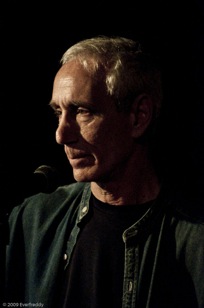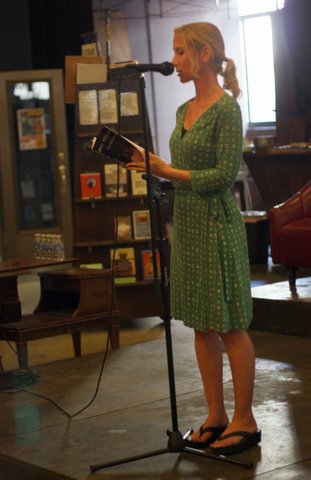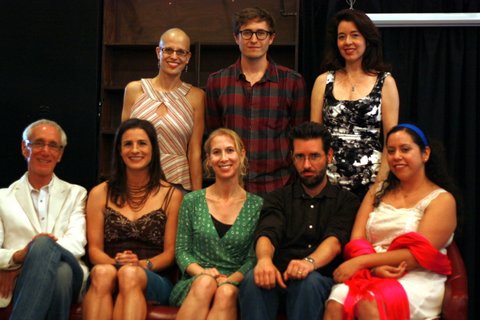P&W–supported Larry Colker blogs about a lifetime of "cherished lines." He has cohosted the weekly Redondo Poets reading series for about fifteen years. In 2006 he won the California Writers Exchange Award, sponsored by Poets & Writers, Inc. His first book-length collection, Amnesia and Wings, was published by Tebot Bach in May 2013. By day Larry develops and delivers systems training for Kaiser Permanente. He lives in Burbank, California.
 Several events commingled in my head last weekend. On June 2, 2013, I attended the poetry reading at Charles F. Lummis Home, El Alisal, which opens Lummis Day each year in Highland Park, California. (The reading is supported by Poets & Writers, Inc., and by PEN Center USA). Host Suzanne Lummis spoke of her campaign to get a book of poetry, or two, in every home in Northeast Los Angeles so that every child there would grow up with poetry in the house.
Several events commingled in my head last weekend. On June 2, 2013, I attended the poetry reading at Charles F. Lummis Home, El Alisal, which opens Lummis Day each year in Highland Park, California. (The reading is supported by Poets & Writers, Inc., and by PEN Center USA). Host Suzanne Lummis spoke of her campaign to get a book of poetry, or two, in every home in Northeast Los Angeles so that every child there would grow up with poetry in the house.
Then I walked over to Heritage Square to listen to a set by Jim Kweskin—a blast from my past who reminded me how deeply we respond to what was in the air during certain times of our lives...especially our first three years and adolescence, and also when we find ourselves in new surroundings—such as going to college or to a foreign country for the first time. There is a concept I learned about when studying early childhood education called “sensitive periods,” during which we are especially apt at learning certain skills (such as language or a musical instrument) or when lifetime predilections begin to form.
This train of thought led me to recall my experience several months ago reading poetry and answering very smart questions about my writing in my grandson's second-grade class. His teachers had laid a very sound foundation for appreciating poetry.
In my junior year of high school, we were assigned one poem a week and wrote each one from memory (including exact punctuation) every Monday in class. My grandmother quoted from William Cullen Bryant's “Thanatopsis,” a poem taught to her in high school, to her dying days at age 101.
Wait, it all comes together.
Who communicated a love of poetry to you? How old were you? Can you recite the first poem that swept you up into a life you would thereafter perceive in a new way?
Be that person for someone. Catch them young. I thank my parents for having poetry in our house. I thank my teachers. I thank everyone who has carried even a few cherished lines of poetry to the end of their life. Aim to write one of those poems.
Photo: Larry Colker. Credit: Fred Turko.
Major support for Readings/Workshops in California is provided by The James Irvine Foundation. Additional support comes from the Friends of Poets & Writers.





 Several events commingled in my head last weekend. On June 2, 2013, I attended the poetry reading at Charles F. Lummis Home, El Alisal, which opens Lummis Day each year in Highland Park, California. (The reading is
Several events commingled in my head last weekend. On June 2, 2013, I attended the poetry reading at Charles F. Lummis Home, El Alisal, which opens Lummis Day each year in Highland Park, California. (The reading is  It was poet
It was poet  Larry Colker, poetry winner from 2007, showed off the Matrix-like cover of his book
Larry Colker, poetry winner from 2007, showed off the Matrix-like cover of his book 